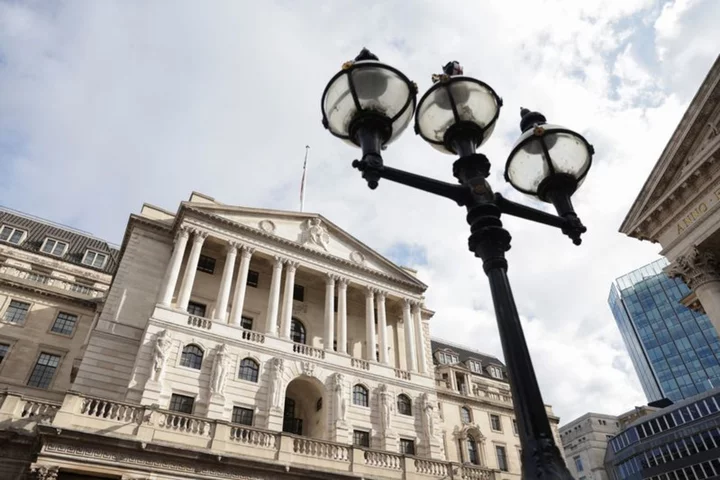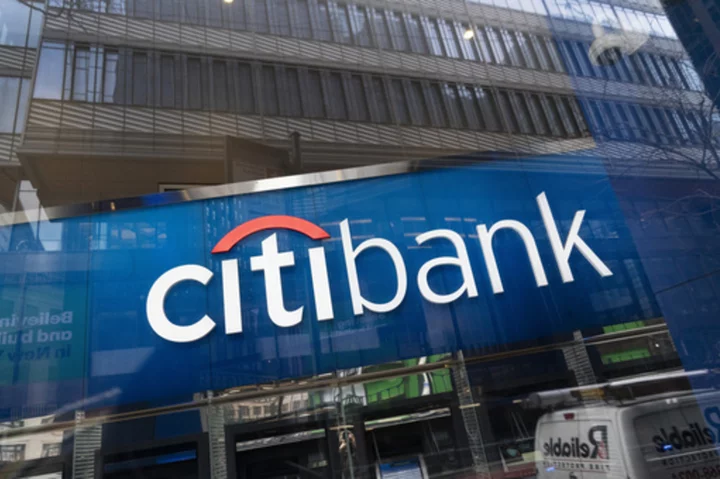By William Schomberg
LONDON Britain's economy is showing some signs of strain from the Bank of England's 13 back-to-back interest rate increases, but the jobs market is still generating inflationary heat and consumers have not reined in their spending sharply.
The BoE is expected to keep on raising borrowing costs as it tries to bring down an inflation rate which at 8.7% in May was the highest among the world's big, rich economies.
But the BoE is also aware that the economic impact of its 18-month campaign of rate hikes has yet to be felt fully.
Below is a summary of key measures of the economy that the BoE will be watching before its next announcement on interest rates on Aug. 3.
INFLATION THREAT
British consumer price inflation held at 8.7% in annual terms in May, down from a peak of 11.1% last October but the highest among the Group of Seven advanced economies.
More worrying for the BoE, two measures of underlying price growth - core inflation, which excludes energy, food, alcohol and tobacco prices, and price increases in the services sector - both hit their highest rates since 1992.
HOUSING MARKET
To date, the most obvious impact of the increase in the BoE's Bank Rate from 0.1% in December 2021 to the current 5.0% has been in the housing market.
House prices as measured by mortgage lenders Nationwide and Halifax have fallen by their most in annual terms in more than a decade as interest rates on mortgages rise quickly on expectations of further increases to borrowing costs.
The BoE knows much of the impact of its rate hikes has yet to be felt because most mortgages in Britain are fixed-rate deals which protect homeowners from swings in borrowing costs but will come up for renewal at higher rates.
Of nearly 7 million fixed-rate mortgages, which account for 80% of residential home loan deals, around 800,000 end in the second half of 2023 and a further 1.6 million deals end in 2024.
INSOLVENCIES
There are signs that companies, especially smaller ones, are struggling as borrowing costs rise and the economy barely grows.
Company insolvencies in England and Wales in May jumped 40% on a year-on-year basis in May to the highest level since monthly records began in January 2019, government data showed.
The construction and retail sectors were hit hardest and the number of food manufacturers in trouble also increased. Some 99% of liquidations featured companies with annual sales of under 1 million pounds, according to accounting firm PwC.
LABOUR MARKET
But many companies are continuing to hire and are pushing up pay sharply to retain and attract staff, a big worry for the BoE in its battle against inflation.
Data this week showed the strongest growth in wages excluding bonuses in records dating back to 2001.
Annual growth in wages excluding bonuses stood at 7.3% for the March-to-May period, too high for the BoE's hopes of getting inflation back to its 2% target.
However, there are also signs that the labour market is cooling. The unemployment rate rose unexpectedly to 4% in the March-to-May period and the number of vacancies fell for a 12th month in a row to its lowest level since mid-2021.
CONSUMERS KEEP ON SPENDING
Most consumers have managed to keep up the pace of their spending despite inflation's squeeze on their incomes.
Retail sales volumes unexpectedly rose in May from April, although they were 2.1% lower than in May of last year.
Many people still have some of their savings from the pandemic. The saving ratio, measuring the income that households save as a proportion of disposable income and employer pension contributions, stood at 8.7% in early 2023, down from 9.3% in late 2022 but higher than 5.6% just before the pandemic hit.
Consumer confidence, as measured by polling firm GfK, hit a 17-month high in June, although it remains below its levels of much of the past 10 years. Household indebtedness is below a high touched before the 2007-2009 global financial crisis.
RECESSION RISK REMAINS
The economy has so far defied recession forecasts made only a few months ago, but the recent jump in expectations of higher borrowing costs may yet tip it into a contraction this year after a painfully slow recovery from the COVID lockdowns.
British gross domestic product has recovered from the pandemic more slowly than all the other G7 economies bar Germany, according to data up to the first three months of 2023.
(Graphics by Sumanta Sen, Kripa Jayaram and Vincent Flasseur; Editing by Paul Simao)









